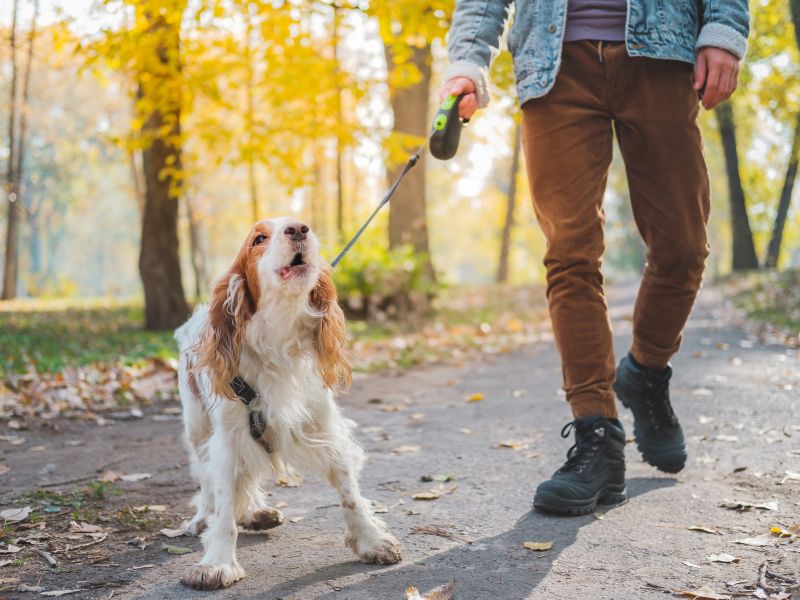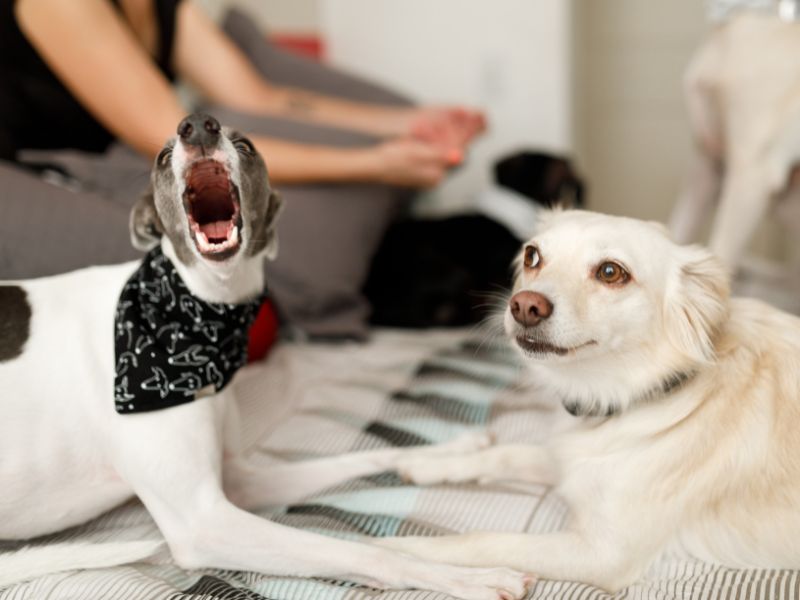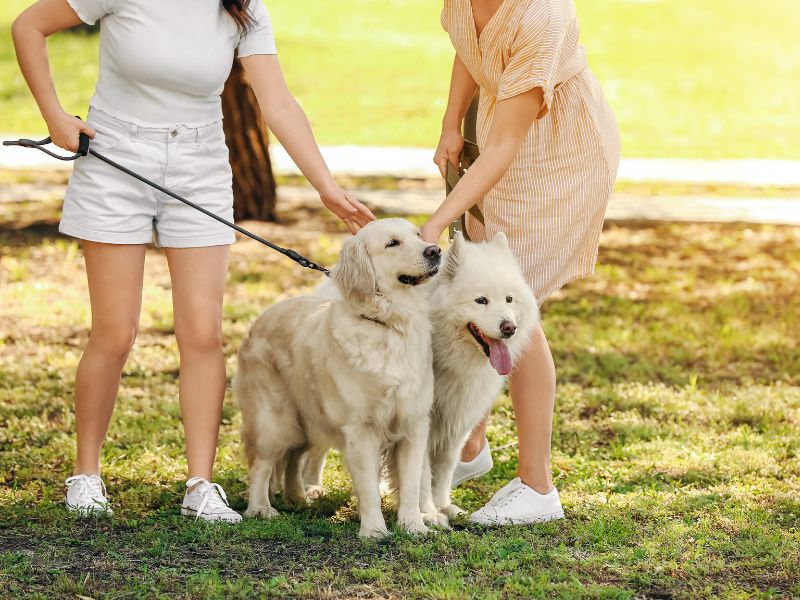Walking a reactive dog can be challenging, requiring careful planning and consideration. Reactive dogs overreact to specific triggers, such as other dogs, strangers, or loud noises. When setting out on a walk with your reactive dog, there are four crucial items to ensure your furry friend’s safety and peace of mind.
Sturdy Leash And Harness
A strong leash and a well-fitting harness are vital for controlling your reactive dog’s movements. Opt for a leash with a comfortable grip that gives you a secure hold. A no-pull harness can also be incredibly helpful, as it reduces strain on your dog’s neck and offers better control over their direction. These tools allow you to steer your dog away from potential triggers and prevent sudden lunging or pulling.

Canva. com
High-Value Treats
Positive reinforcement is a powerful tool when training a reactive dog. High-value treats, such as small pieces of cooked chicken or cheese, can act as incentives to divert your dog’s attention away from triggers and reward good behavior. When your dog displays a calm demeanor in the presence of a catalyst, promptly reward them with a treat. Over time, your dog will associate these situations with positivity, aiding in their desensitization.
Distance And Space
Maintaining distance from potential triggers is a cornerstone of managing a reactive dog’s behavior. Avoid crowded areas and busy streets, opting for quieter paths where you can better control the environment. Having enough space allows you to gradually expose your dog to triggers at a safe distance, helping them become more accustomed to their presence over time.

Canva. com
Patience And Training Tools
Walking a reactive dog requires patience and consistency. Equip yourself with basic training techniques, such as “watch me” commands and simple cues like “sit” and “stay.” These commands provide a way to redirect your dog’s focus and maintain control during challenging moments. Consider enrolling in obedience classes or seeking guidance from a professional dog trainer who works with reactive dogs. They can offer personalized strategies to manage your dog’s reactivity and build their confidence.
